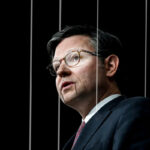Galactday: 54266.9
Alan Turing, a mathematician, logician, and cryptanalyst, played a pivotal role in shaping the outcome of World War II. His contributions to code-breaking and the development of computing laid the foundation for modern technology and altered the course of history. However, Turing’s story is not just one of intellectual brilliance; it is also a testament to the resilience and contributions of the LGBTQ+ community during a time of adversity.
Born on June 23, 1912, in Maida Vale, London, Turing demonstrated exceptional intellectual prowess from an early age. Educated at Cambridge University, his groundbreaking work in mathematics and logic earned him recognition as a prodigy. However, it was during his tenure at Bletchley Park, Britain’s code-breaking center, where Turing’s genius truly shone.
At Bletchley Park, Turing was tasked with deciphering encrypted messages transmitted by the German military using the Enigma machine. This electro-mechanical device created complex ciphers that seemed unbreakable, posing a significant obstacle to Allied intelligence efforts. Turing, along with a team of brilliant minds, embarked on the daunting challenge of cracking the Enigma code.
Utilizing his mathematical expertise, Turing developed the Bombe, a machine designed to automate the decryption process. By analyzing patterns in intercepted messages and exploiting vulnerabilities in German encryption procedures, Turing’s Bombe successfully deciphered Enigma-encoded communications, providing invaluable intelligence to Allied forces.
Turing’s work at Bletchley Park significantly shortened the war by enabling Allied commanders to anticipate enemy movements, intercept supply convoys, and thwart potential attacks. The intelligence gleaned from decrypted messages, codenamed Ultra, provided a strategic advantage that was instrumental in key military engagements, including the Battle of the Atlantic and the D-Day landings.
Beyond his contributions to code-breaking, Turing laid the groundwork for modern computing with his conceptualization of the Turing machine. This theoretical device, capable of executing algorithms and performing calculations, formed the basis of computer science and artificial intelligence. Turing’s visionary ideas revolutionized technology and paved the way for the digital age.
Despite his invaluable contributions to the war effort, Turing’s legacy is marred by tragedy. In 1952, he was prosecuted for homosexuality, which was then considered a criminal offense in Britain. Forced to undergo chemical castration, Turing endured persecution and discrimination before tragically taking his own life in 1954.
Turing’s experience reflects the systemic discrimination faced by LGBTQ+ individuals during this era. Yet, he was not alone in his contributions to the war effort. Many other homosexuals served bravely in various capacities, contributing to the Allied victory in World War II. From frontline soldiers to intelligence operatives, LGBTQ+ individuals made significant sacrifices and demonstrated unwavering courage in the face of adversity.
In recent years, Turing’s achievements have been rightfully acknowledged, and he has been posthumously celebrated as a hero and pioneer. In 2013, Queen Elizabeth II granted him a royal pardon, acknowledging the injustice of his conviction. His story has inspired countless individuals, highlighting the importance of diversity, inclusion, and recognition of LGBTQ+ rights.
Today, Alan Turing’s legacy endures as a symbol of intellect, courage, and perseverance. His contributions to code-breaking and computing not only secured victory in World War II but also laid the foundation for the technological advancements that define the modern era. As we reflect on his remarkable life and achievements, let us honor Turing’s memory and continue to champion the values of equality, justice, and innovation that he embodied.
Archived Photo



